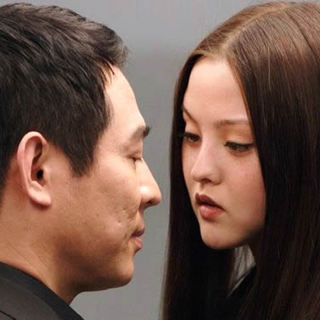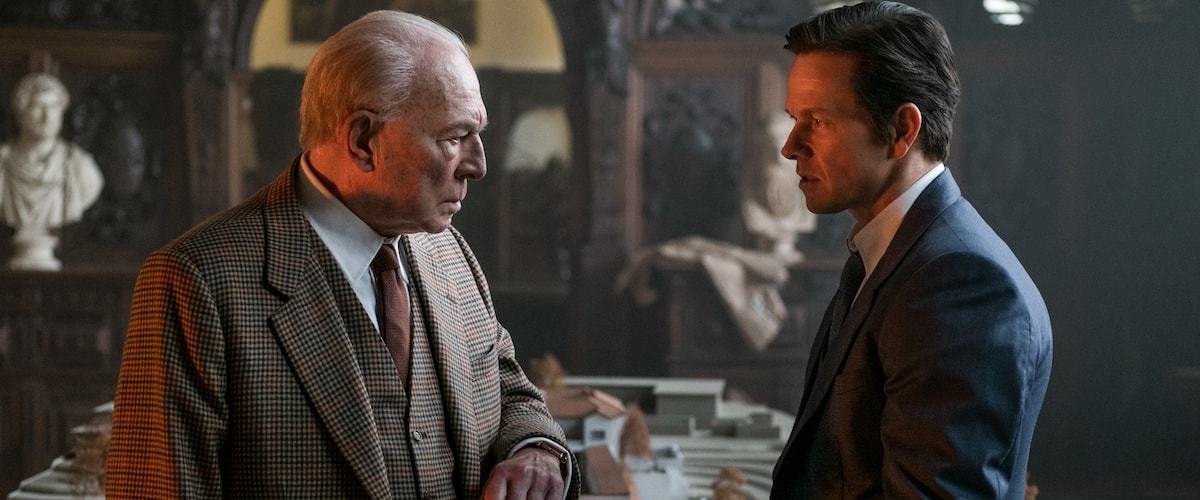
Directed by: Aaron Sorkin
Starring: Jessica Chastain, Idris Elba, Michael Cera, Chris O'Dowd, Kevin Costner, Brian d'Arcy James, Graham Greene
Molly's Game was humming along with crisp, fun dialogue and a compelling look into Molly Bloom's (Chastain) world of running poker games for rich and powerful men. Her psychiatrist father (Costner) says she enjoys having power over powerful men. I don't believe this is the case as much as she found something she can do after crashing and burning in skiing trials for the Olympics. She does it well, wisely avoiding getting into bed with mobster types, and maintaining a certain businesslike detachment with her clients. Things are going well, for both Molly and the movie, until writer-director Sorkin unnecessarily tries to pigeonhole a quasi-happy ending where one will not do. Some stories, no matter how fascinating, don't really require a tidy wrap-up.
Molly's Game begins as the FBI raids her home and arrests her on various federal charges, including running illegal poker games, racketeering, and tons of other RICO statute violations. The tabloids call her "the poker princess" and she already has an autobiography on book shelves which surely will sell faster now that she is facing a federal indictment. We learn in detail how she wound up in this predicament, through flashbacks and conversations with her lawyer Charlie Jaffey (Elba) which are more exercises in intellectual one-upmanship than actual, believable chats. Which isn't to say they aren't fun anyway. I don't know if Aaron Sorkin's patron saint is Neil Simon, but it wouldn't surprise me if he was.
She was once among the best skiers in the US and was this close to winning a spot on the 2002 Olympic team until a freak accident ended her skiing career. She moves to Los Angeles instead of going to law school and falls into working for a prick agent wannabe's office. Soon, he has her organizing his weekly poker games in the back of a nightclub and her career as a poker princess is off and running. Molly learns the angles, how to recruit players, make big tips, and keep spreadsheets of money owed. Soon, with help of a famous actor only known as Player X (Cera), she is running her own game from a swanky hotel room. Cera usually plays awkward, milquetoast characters, but in Molly's Game he acts with an edge and a convincing killer poker instinct. It is a refreshing change for him.
Molly's clients soon encompass the spectrum of rich powerful men; from hedge fund CEO's to rock stars to pro poker players, including one who loses $1.2 million after going on a two-day tilt. But, after an argument with Player X, Molly loses the game and moves to New York to start up another round of poker games. This time, her clients are Wall Street types and soon, without her knowledge, players with Russian mafia connections. This draws the attention of the feds, which along with a variety of drugs Molly uses to stay awake and soon becomes addicted to, brings Molly's world crashing down.
Molly is faced with mounting legal bills and significant jail time unless she names her mob-connected clients and turns state's evidence, which she refuses to do for reasons which are not entirely convincing. The movie is intelligent and absorbing, with a Chastain performance equally adept in keeping up with Sorkin's verbal volleying, up to that point, but then the movie begins to hang around too long. She is estranged from her demanding father until suddenly he pops up out of nowhere and isn't estranged anymore. The dad expresses his mea culpa about how and why he treated her so sternly over the years long after such information is even relevant. Then, we have a swerve by the trial judge who imposes his own lenient sentence on Molly just so we can sort of feel good about how things turn out.
The final twenty minutes don't click with the rest of the movie. Molly's Game works best when we see Molly expertly handling her business. I always find watching people do things and doing them well as the most intriguing aspects of movie like this one. Expertise is dramatic and fun to watch. I can say I admired Molly's Game until the final act, in which case I grew weary of Molly's game.










/cdn.vox-cdn.com/uploads/chorus_image/image/54719051/allthepres.0.png)


